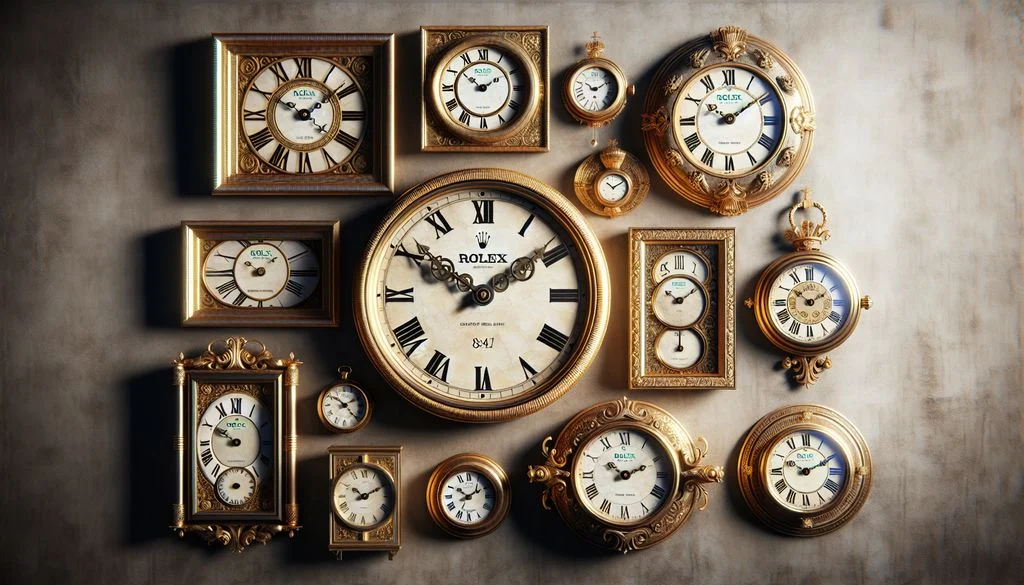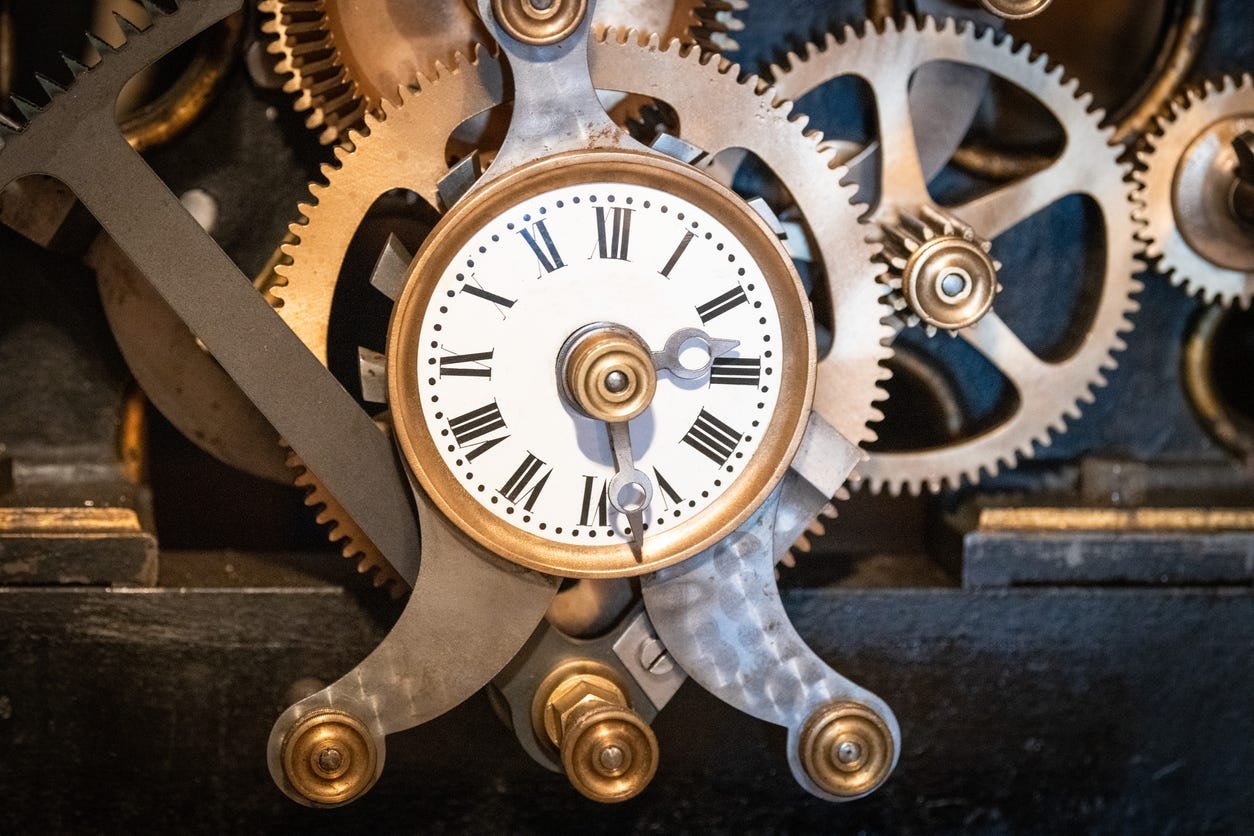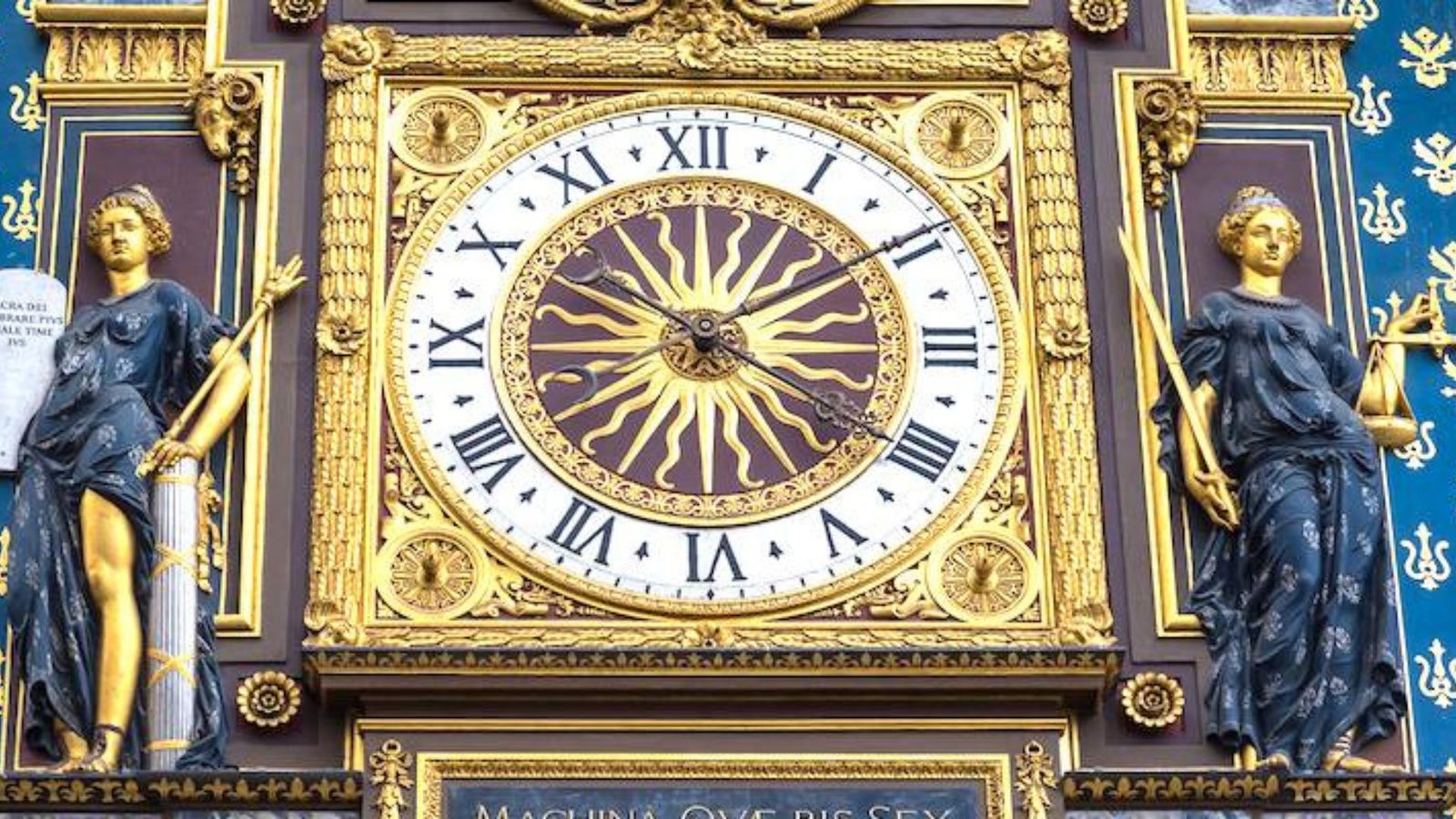Clocks have been more than just tools for keeping time; they have played pivotal roles in shaping history, marking significant milestones, and influencing key events. From guiding explorations to synchronizing wartime efforts, the evolution of clocks reflects their importance in various historical contexts. This article explores the fascinating role of clocks in historical events and milestones, shedding light on their impact across different periods and achievements.
1. Clocks and the Age of Exploration
During the Age of Exploration in the 15th and 16th centuries, accurate timekeeping was crucial for navigation and exploration. Clocks played a significant role in enabling explorers to determine their longitude, a key factor in successful sea voyages.
- Marine Chronometers: The development of marine chronometers, such as those by John Harrison, revolutionized navigation. These precise timepieces allowed sailors to calculate their position at sea accurately, leading to more successful and safer voyages.
- Global Exploration: Clocks and chronometers enabled explorers like James Cook and Ferdinand Magellan to chart new territories and establish trade routes, expanding global interaction and commerce.
2. Clocks and Industrial Revolution

The Industrial Revolution of the 18th and 19th centuries brought about significant changes in manufacturing, labor practices, and daily life, all of which were closely tied to advancements in clock technology.
- Factory Timekeeping: In the industrial era, clocks became essential for regulating factory work hours and managing workforce efficiency. Standardized timekeeping improved productivity and helped coordinate complex manufacturing processes.
- Railway Time: The introduction of railway systems highlighted the need for standardized time. The establishment of time zones and synchronized railway clocks facilitated accurate scheduling and coordination across vast distances.
3. Clocks in Wartime
Clocks have played critical roles in wartime operations, from coordinating military strategies to managing communication and logistics.
- World War I and II: During both World Wars, accurate timekeeping was vital for synchronizing military operations, coordinating attacks, and managing supply lines. Clocks and timers were used in artillery, aviation, and naval warfare to ensure precise timing and execution.
- Atomic Clocks and Cold War: The development of atomic clocks during the Cold War period marked a new era of precision in timekeeping. These highly accurate timepieces were crucial for managing nuclear arsenals and maintaining communication systems between superpowers.
4. Clocks and Scientific Achievements
Clocks have also played a role in significant scientific discoveries and achievements, from astronomy to quantum mechanics.
- Astronomical Observations: Clocks have been essential for precise astronomical observations and timekeeping in observatories. Accurate time measurement allowed astronomers to track celestial events, measure planetary movements, and advance our understanding of the universe.
- Quantum Mechanics: The development of highly accurate atomic clocks has contributed to advancements in quantum mechanics and fundamental physics. These clocks have enabled scientists to test theories of relativity and explore the nature of time itself.
5. Clocks in Cultural Milestones
Clocks have marked various cultural and societal milestones, reflecting their role in shaping human experience and expression.
- Public Clocks and Town Squares: Public clocks installed in town squares and civic buildings have historically served as symbols of community and civic pride. These clocks not only provided timekeeping but also acted as landmarks and focal points for social gatherings.
- New Year’s Eve Celebrations: Iconic clocks, such as the one at Times Square in New York City, have become central to cultural celebrations and traditions. The countdown to the New Year and the striking of midnight are moments marked by clocks that bring people together in shared celebrations.
6. Clocks and Technological Advancements
The evolution of clock technology has had a profound impact on various fields, from communication to computing.
- Telecommunication: The development of synchronized clocks and timekeeping systems has been crucial for telecommunication networks. Precise timing is essential for managing data transmission, network synchronization, and global communication.
- Computing and Digital Clocks: The advent of digital clocks and computing technology has transformed how we measure and use time. Digital clocks have become integral to modern technology, influencing everything from electronic devices to software development.
Conclusion
Clocks have been more than mere timekeeping devices; they have played crucial roles in historical events, scientific achievements, and cultural milestones. From enabling global exploration and managing industrial processes to influencing wartime strategies and advancing scientific research, clocks have been integral to shaping history. As we continue to innovate and advance in timekeeping technology, the legacy of clocks in historical events and milestones remains a testament to their enduring significance.



Yo, 33win68con is giving some generous bonuses. I enjoyed my time. Worth checking out: 33win68con
Need some solid odds info? Keonhacaifb88 is where I’m heading. Hope they got the goods! keonhacaifb88
Das Casino in Monte Carlo präsentiert sich als pittoreskes Spielparadies, das für
die “oberen Zehntausend” einen atemberaubenden Mix aus Luxus und
Muße verspricht. Diese Glücksspieloase begeistert als Spielplatz der Reichen und Schönen, die sich in dem kleinen Fürstentum an der französischen Riviera auf die Suche nach ihrem
ganz persönlichen Glück begeben. Es gibt kein anderes Casino auf dieser Welt, das Vollkommenheit und Status so
eindrucksvoll verkörpert wie das Casino de Monte Carlo.
Erfahren Sie alles über die besten Spielbanken und Spielotheken in allen deutschen Bundesländern und was Sie dabei beachten müssen.
Zudem hat die Bevölkerung in Monaco in den letzten acht Jahren noch einmal um 24,7 Prozent zugenommen.
Monaco an sich lässt sich problemlos als einer der am dichtesten besiedelten Flecken der Erde beschreiben. Mit Niederschlägen ist vor allem
in den Monaten März, Oktober und November zu rechnen.
Diese prädestinierte Lage trägt dazu bei, dass es im Sommer in Monte-Carlo nicht zu heiß wird und
die Temperaturen in diesen Wochen nur selten über 30 Grad erreichen.
References:
https://online-spielhallen.de/vegas-casino-freispiele-ihr-weg-zu-gewinnen-ohne-risiko/
Im Gegensatz zu lizenzierten Casinos gibt es keine Einsatzlimits oder monatliche Einzahlungsgrenzen. Neue Online
Casinos bieten oft Vorteile wie höhere Auszahlungsquoten zwischen 94% und 97%.
Ein Beispiel ist Instant Casino, das als bestes neues Online Casino ohne deutsche Lizenz gilt.
Der Markt für neue Online Casinos ohne deutsche Lizenz wächst stetig.
Beim Smartphone Glücksspiel in nicht-lizenzierten Casinos gelten oft keine Einsatzlimits oder
Wartezeiten zwischen Spielrunden. Während lizenzierte Anbieter oft Einschränkungen unterliegen,
können Sie hier aus einem breiteren Angebot wählen.
Die meisten Casinos verzichten jedoch auf
die deutsche Lizenz und werden stattdessen von renommierten Behörden im Ausland reguliert.
Nur wenige Casinos haben sich bisher offiziell um die deutsche Lizenz beworben. Mit seinem Willkommensbonus schreitet man deutlich über
die 100-Euro-Grenze hinaus und bietet euch gleich
drei verschiedene Boni an. Verbotene Wettarten, wie
zum Beispiel Mixed Martial Arts oder andere Kampfsportarten, sind
für deutsche Kunden ohne Einschränkungen nutzbar.
References:
https://online-spielhallen.de/ggbet-casino-freispiele-ihr-umfassender-leitfaden/
Royal Reels Casino’s extensive selection of games offers ample opportunities for both seasoned players and beginners
to refine their strategies, maximizing long-term success
in the dynamic world of online gaming. At Royal Reels Casino, we offer a diverse selection of pokies
and casino games, enhanced with superior bonuses and an enriched gaming experience.
Royal Reels Casino is a newly launched casino that offers over 2000 games, including live dealer options, making it a top
contender in the Australian online gambling market.
Experience the convenience of instant deposits and rapid withdrawals in AUD.
Unlock incredible value with our tailored bonus packages.
Spin the reels on Australia’s most exciting collection of high-quality pokies Experience the difference with our commitment to
fair play and exceptional service. Dive into Australia’s
leading destination for premium slots and live
entertainment.
References:
https://blackcoin.co/39_best-vip-online-casino-2022_rewrite_1/
There was an error while loading. Flip the cards, try to remember their positions, and match all pairs to win the game!
A puzzle game where the objective is to combine tiles with the same value
to reach the elusive 2048 tile.
Repacks are highly compressed game downloads, designed for people
with slow/limited internet bandwidth. And now, on with the game-hacking goodness!
OpenSpiel is a collection of environments and algorithms for research in general reinforcement learning and search/planning in games.
Play your favorite games in a borderless window; no more time
consuming alt-tabs.
Lightweight, high-performance HTML renderer for game and app developers.
An open source re-implementation of Diablo 2 Transforms
tkinter, Qt, WxPython, and Remi into a simple, intuitive, and fun experience for both hobbyists and expert users.
Yo can i work with you guys on google.sites.com?
Instantly share code, notes, and snippets. Remember to
do that if the game doesn’t seem to work in Roblox Studio.
References:
https://blackcoin.co/no-deposit-free-spins-bonuses-2025/
The branch details for HSBC, Billericay generated
by people like yourself can be viewed to the right.
Your security is our priority Get instant support from our Chat Assistant, online support from our Chat agents and telephone support from our
helpdesk Generate secure codes for logging on to Business Internet Banking, making payments and more.
The new way to share account information and make payments online.
We’re rolling out changes to mobile and online banking.
The bank claimed that continuing to provide bank
accounts would be outside of their “risk appetite”
and said the decisions were “absolutely not based on race or religion” but declined to comment on individual
cases. In 1989, Midland Bank launched First Direct,
the pioneer of telephone banking, with a person-to-person service
available 24 hours a day, 365 days a year.
Additionally, you can make payments and authorise changes on the move, all from the convenience of your phone.
Set up Business Banking on your phone through the app for
simple, secure authentication. This website is designed for use in the
United Kingdom.
References:
https://blackcoin.co/online-slots-in-australia/
Finally, the validity of each welcome bonus part is
14 days. Moreover, maximum win and cashout
is FS wins cap A$300; bonus cashout cap A$5,000.
First of all, wagering is 40× (bonus + FS wins).
There are some additional conditions for all four welcome deposits.
Looking for a casino to trust fully and win big in Australia?
With most games available around the clock, the betting limits may vary from room to room.
Additionally, popular categories like Megaways and Fruit-themed games await your exploration.
With many such options, finding your favorite games is accessible through the convenient filtering
features in the Skycrown lobby. Established in 2022, SkyCrown is a reputable online
casino licensed in Curaçao and operated by Hollycorn N.V.
Casinos. People who write reviews have ownership to edit or delete them at any time, and they’ll be displayed as long as an account is active.
You’ll see this reflected in smoother gameplay, stable streams, professional dealers, and a broader mix of formats.
Realz Casino offers a weekly reload bonus of 50 free spins
available from Monday to Thursday, as well as a generous weekend reload bonus of 50% up to AU$1,
050 plus 50 free spins. Once wagering is cleared, use your extra funds to explore their
live dealer tables, including roulette, blackjack, and game show formats.
You can choose from European or American wheels with different RTPs, while Auto Roulette offers faster spins without a live host.
Multiple camera angles, slow-motion replays, and live wheel spins let you see every
detail, even more clearly than when you’re sitting at a physical roulette
table.
References:
https://blackcoin.co/casino-gambling-the-kinds-of-casino-bonuses/
paypal casino usa
References:
manpowerassociation.in
online betting with paypal winnersbet
References:
https://lavoroadesso.com/employer/paypal-casinos-2025-best-online-casinos-accepting-paypal/
online casino accepts paypal us
References:
cctvss1004.com
casino online uk paypal
References:
http://www.maxes.co.kr/bbs/board.php?bo_table=free&wr_id=2751050
paypal casinos for usa players
References:
https://hrzoom.ca/employer/top-payid-online-casinos-trusted-sites-only/
online casinos that accept paypal
References:
https://chunboo.com/bbs/board.php?bo_table=free&wr_id=238
55bmwwin… The name says it all! I’m ready to WIN BIG, baby! Let’s go. Check them out now 55bmwwin